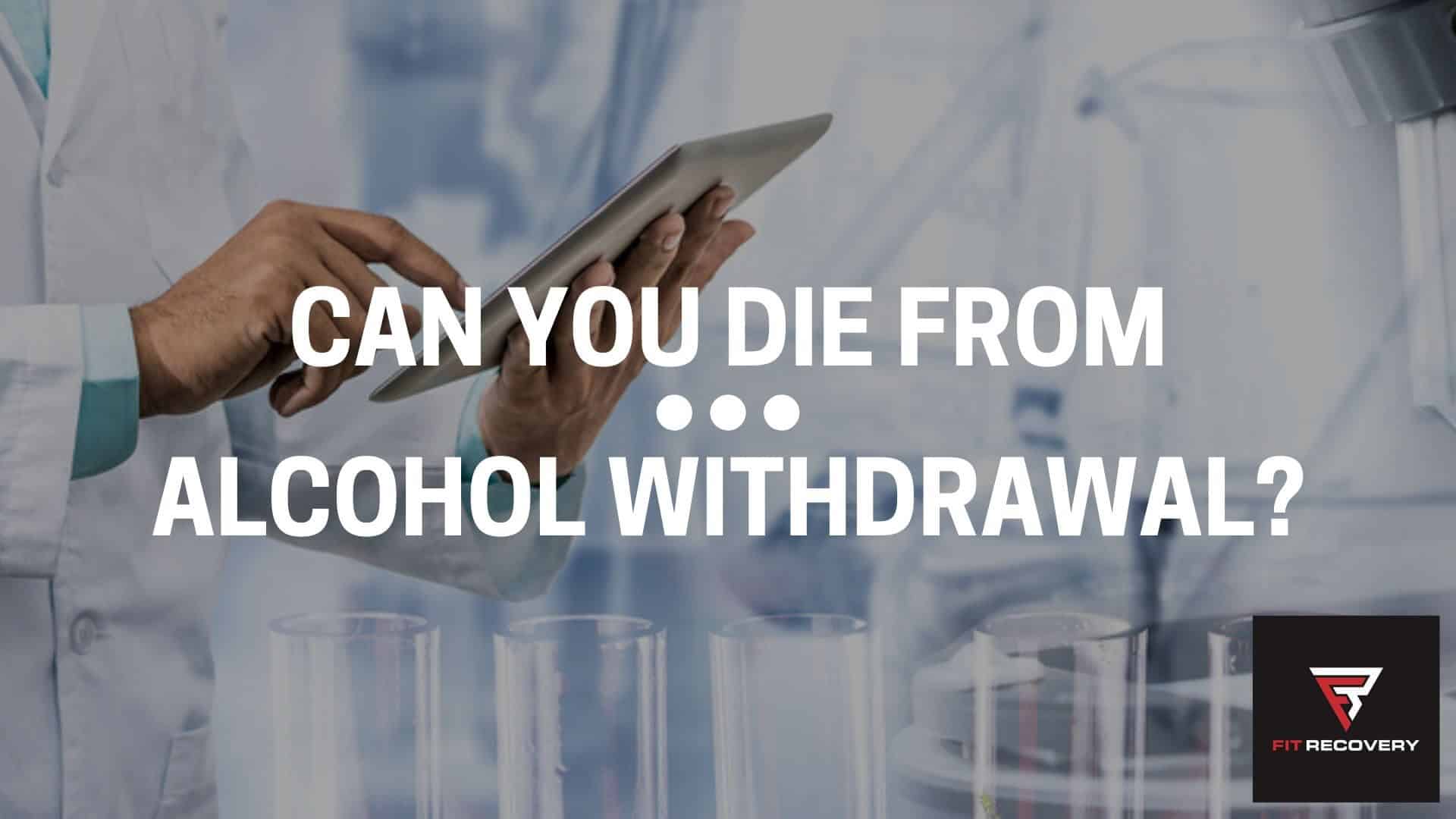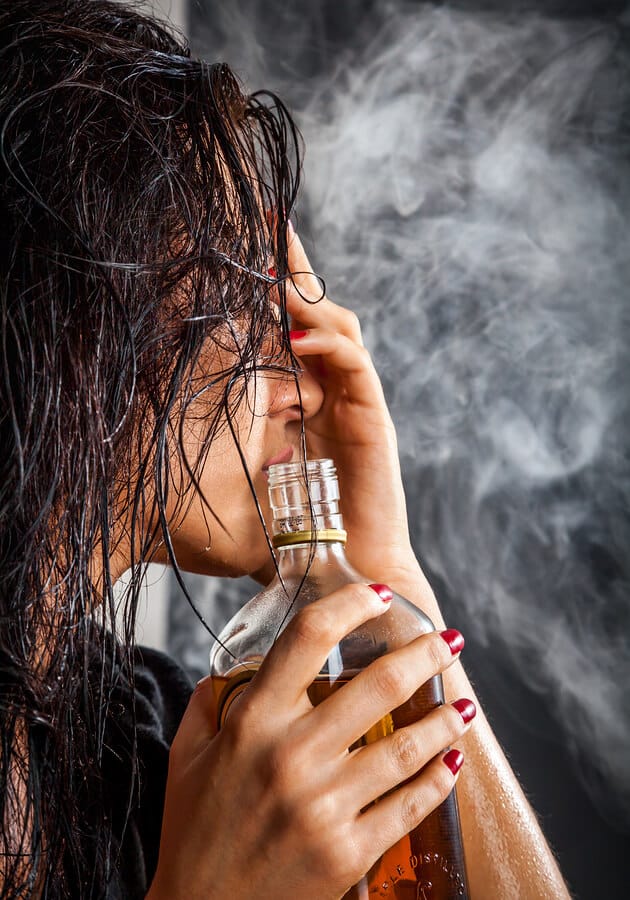“Can you die from alcohol withdrawal?” is a question that bothered me for many years. Before I quit drinking, I had heard that some people died during withdrawal. But for a long time, I thought that doing cold turkey detoxes from alcohol would make me learn my lesson and quit drinking for good.

I never learned my lesson from self-induced misery, and I later learned why this approach is both wrong and dangerous.
The mission of Fit Recovery is not to spread fear about alcohol or withdrawal. My goal is to shed light on every issue surrounding recovery so that you can make informed decisions that help you over the long term.
This article will explore why some people die from withdrawal, and what you can do to prevent this outcome.
Before we begin, I will say that if you have symptoms of severe withdrawal – including hallucinations or seizures – it’s best to get medical attention immediately.
You can return to this website after you detox for information about how to optimize your recovery and feel better as soon as possible.
Complications of Withdrawal

Among people who do not have severe symptoms or who seek medical treatment, death from withdrawal is rare.
Disturbingly, however, the majority of people who quit drinking attempt to do so WITHOUT an intelligent plan or professional supervision.
I was once one of these people. I attempted to quit drinking many times with no plan and always relapsed sooner or later. I waited until my withdrawal was so severe that I had to be placed in a detox center.
I did not know that “toughing it out” was actually increasing the risk of brain damage and worsening the severity of my future withdrawal episodes, thanks to a phenomenon known as kindling.
Death from withdrawal often involves one of the following immediate contributors:
- Seizures
- Aspiration (choking)
- Falls
- Heart attack
- Stroke
- Liver failure
- Kidney failure
- Blood infection
- High or low blood pressure
The risk of dying from withdrawal increases with the following variables:
- Heavy daily drinking for months or years
- Previous severe withdrawal episodes
- Underlying chronic diseases affecting the heart or nervous system
- Infection
- Malnutrition
- Cirrhosis of the liver
To learn more about managing withdrawal depending on the severity of your symptoms, read my article on the alcohol withdrawal timeline.
Research & Statistics

Some studies have examined the incidence of death from alcohol withdrawal:
- Severe withdrawal called Delirium Tremens occurs in about 10% of withdrawal patients, and 5-25% of these patients have fatal complications (source)
- A Spanish study found that death from withdrawal depends on the severity of withdrawal symptoms and the presence of underlying health issues (source)
- Deaths due to withdrawal are often not caused by seizures themselves but by falls and underlying health issues (source)
- Drinking half a liter of hard liquor every day for several months can lead to Delirium Tremens (source)
- The majority of alcoholism-related deaths are not due to withdrawal but to car accidents, suicides, and chronic health problems caused by drinking (source)
The idea of dying after being admitted to a hospital for withdrawal is terrifying. Fortunately, modern medicine has rendered this phenomenon relatively rare.
Far more people die slowly and painfully because they succumb to serious mental illnesses and chronic diseases that alcohol causes over time.
If you make the decision to quit before your symptoms become severe, you have a very good chance of not only surviving withdrawal, but changing your life and transforming forever.
Can Your Body Go Into Shock When You Stop Drinking?

When an alcoholic stops drinking abruptly, he or she may experience a seizure. Seizures usually cause death by inducing choking, falls, or exacerbating existing damage to crucial organs like the heart or brain.
Seizures can occur because the alcoholic brain has adapted over time to the continued presence of alcohol. Because alcohol is a depressant, the brain ramps down its production of its own natural calming chemicals. It also ramps up electrical activity overall to compensate for alcohol’s presence.
When this substance is taken away suddenly, this carefully calibrated brain balance falls apart. Confusion, severe anxiety, paranoia, rapid heartbeat, and other symptoms occur because the brain’s calming chemical (GABA) is too depleted to keep its excitability/stress chemical (glutamate) in check. In severe cases, this situation can result in seizures.
Withdrawal seizures tend to occur only in cases of severe addiction. If you are mildly or even moderately dependent on alcohol, you are not likely to experience seizures.
You can learn more about this subject in my article on alcohol withdrawal seizures.
Can You Die if You Stop Drinking?
Before medical detox became commonplace, death rates from withdrawal were as high as 20%.
The good news today is that competent detox centers help people with severe addictions get through withdrawal. These hospitals often use benzodiazepines like Ativan or Librium to help prevent DTs and seizures.
Some people can even obtain these prescriptions from their doctors to detox at home.
Because the risk of severe complications – including death – rises with the number of past withdrawal episodes, it’s essential to begin body and brain repair as soon as detox is finished.
Supplementation with vitamins, minerals, amino acids, and fatty acids is a subject that most rehab centers ignore – to the detriment of their patients.
The point of body and brain repair after quitting drinking is to normalize levels of neurotransmitters and hormones that are required to feel good naturally. When you feel good, you’re far less likely to relapse.
Is It Dangerous To Stop Drinking Abruptly?
The short answer is that abrupt cessation of drinking can cause major complications for people who are heavily addicted. The risk is much lower for people with low to moderate physical dependence.
I hope that one day, addiction education is so universal that suffering people no longer have to ask Google whether they can die from withdrawal.
The stigma attached to addiction keeps many people in the dark about the basic facts of this condition.
It will end when enough of us accept the condition, conquer withdrawal with an intelligent plan, and then transcend the heavy drinking lifestyle completely.
It’s been years since I’ve had a drink, and I never feel any shame in telling people: “I used to drink too much, so I quit.” 98% of the time, the response is genuine: “Wow, good for you.”
If you have any questions, please leave them in the comment box below.

Authors
-
Chris Scott founded Fit Recovery in 2014 to help people from around the world dominate alcohol dependence and rebuild their lives from scratch. A former investment banker, he recovered from alcohol dependence using cutting-edge methods that integrate nutrition, physiology, and behavioral change. Today, Chris is an Alcohol Recovery Coach and the creator of an online course called Total Alcohol Recovery 2.0.
View all posts -
Dr. Ken Starr is board certified in both Addiction Medicine and Emergency Medicine, and diplomate of the American Board of Addiction Medicine. In addition to his work as the Addiction Medicine Director for Fit Recovery, he operates Ken Starr MD Wellness Group in Arroyo Grande, CA. His clinic offers advanced drug and alcohol detox methods, long term recovery facilitation, and IV nutritional programs including NAD+ therapy.
View all posts





